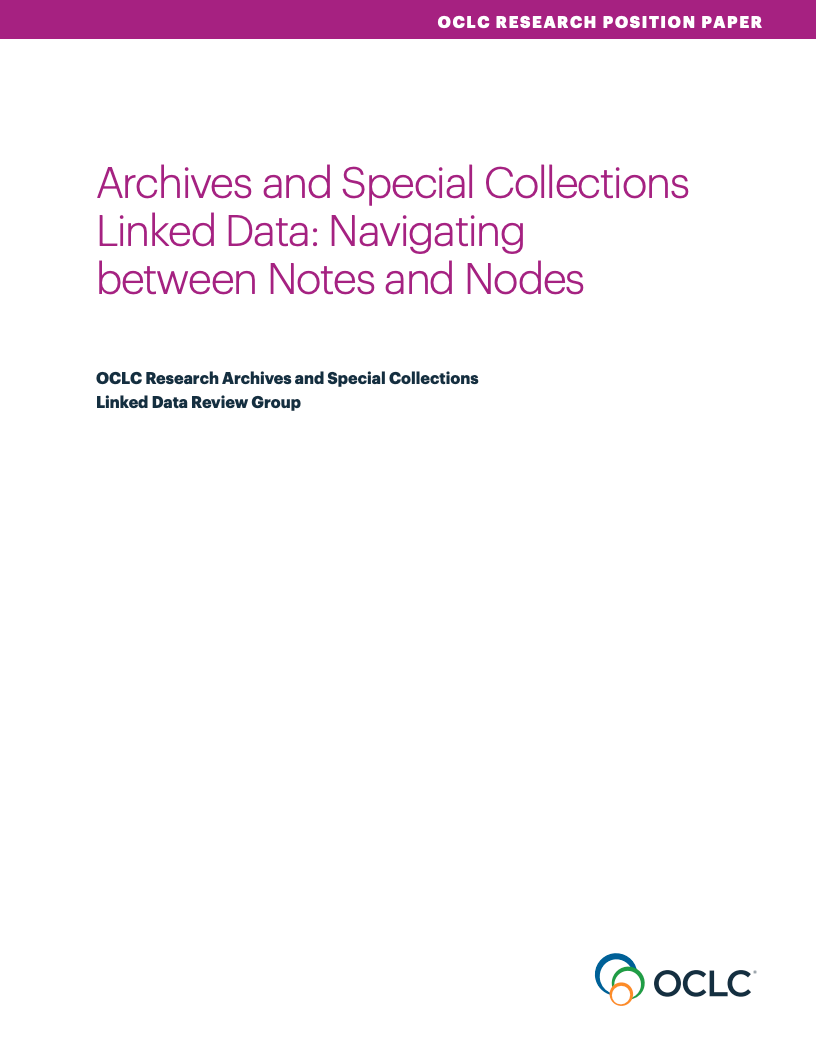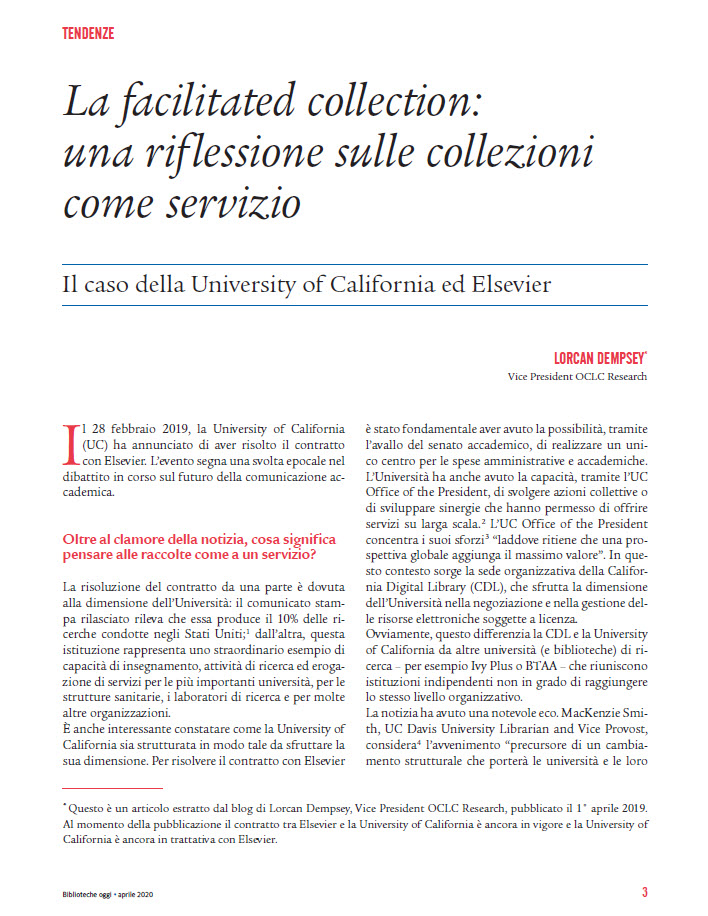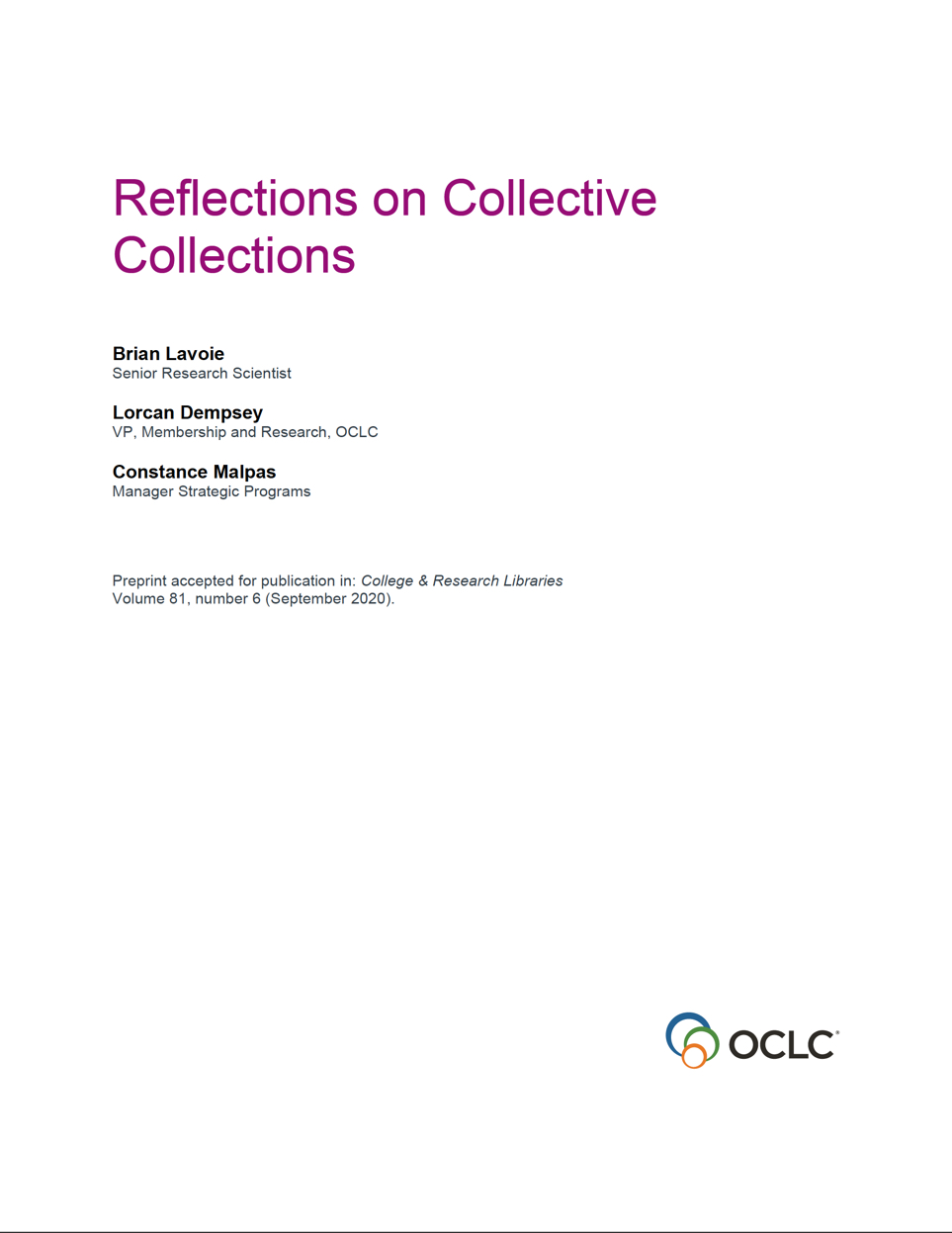Collective Collection
A Collective Collection refers to the shared resources of multiple libraries, archives, and museums. Collective Collections can be leveraged to benefit all institutional stakeholders, including researchers, scholars, students, and patrons.
OCLC Research’s Collective Collection work provides evidence and insight to support decision-making into how cultural heritage institutions organize shared collections and services. Through this work, OCLC Research is helping to create a more connected, collaborative landscape for libraries, archives, and museums, with the goal of making collections more accessible, impactful, and cost-efficient.
Publications
-

Archives and Special Collections Linked Data: Navigating between Notes and Nodes
21 July 2020
OCLC Research Archives and Special Collections Linked Data Review Group
This publication shares the findings from the Archives and Special Collections Linked Data Review Group, which explored key areas of concern and opportunities for archives and special collections in transitioning to a linked data environment.
-

La facilitated collection: una riflessione sulle collezioni come servizio
21 April 2020
Lorcan Dempsey
The post considers how the contract termination between the University of California and Elsevier has signaled a change for our scholarly communication models.
-

Reflections on Collective Collections
16 January 2020
Brian Lavoie, Lorcan Dempsey, Constance Malpas
Collective collections are the combined holdings of a group of libraries, analyzed and possibly managed as a unified resource. Constructing, understanding, and operationalizing collective collections is an increasingly important aspect of collection management for many libraries. This article presents some general insights about collective collections, drawn from a series of studies conducted by OCLC.